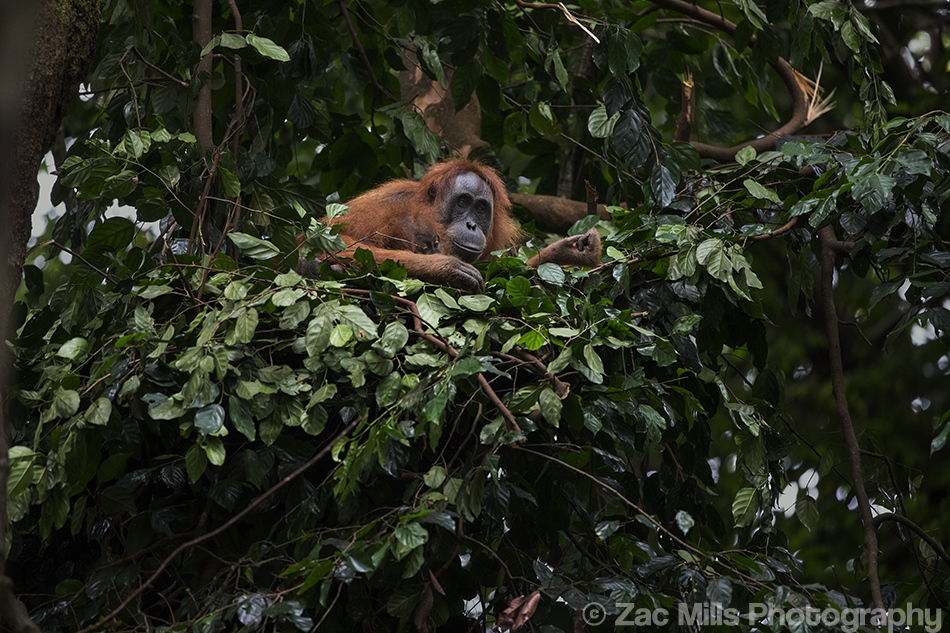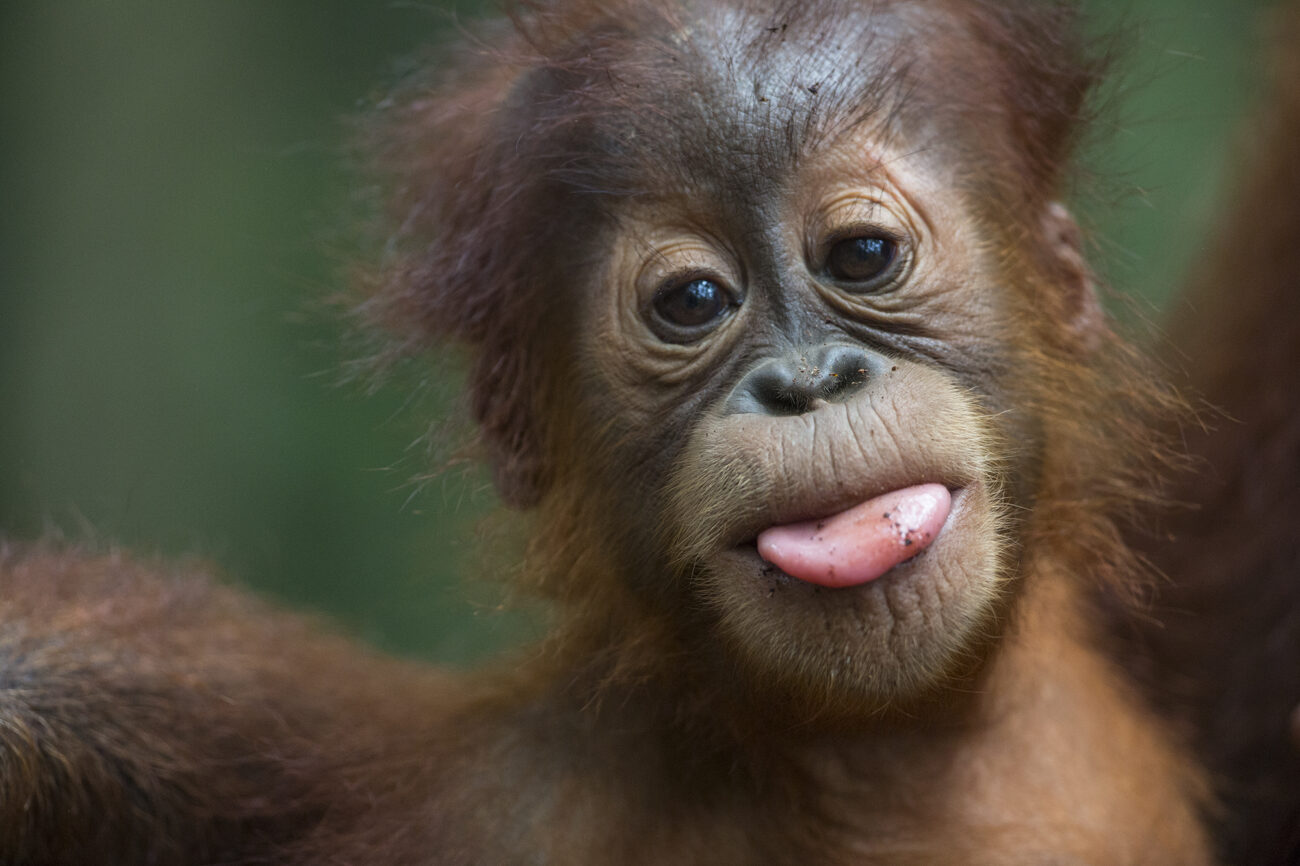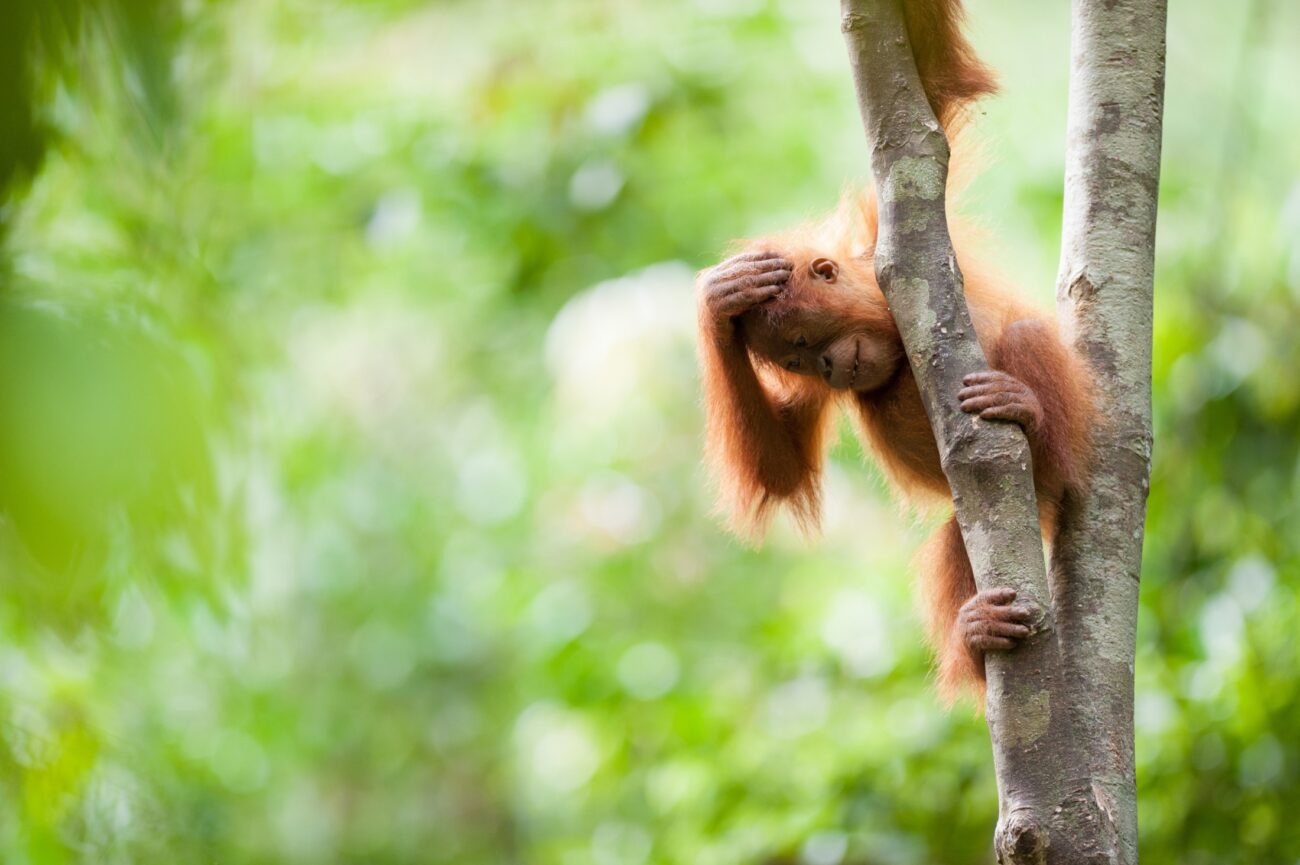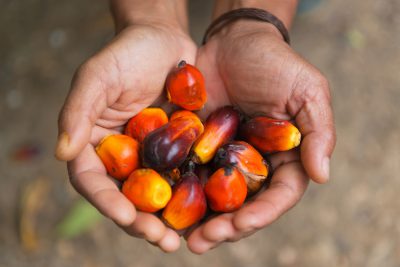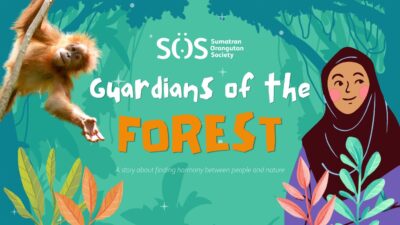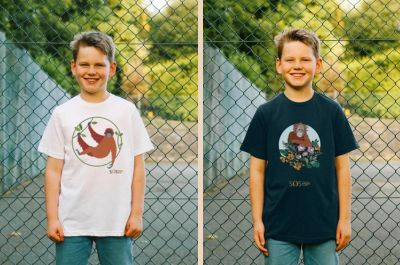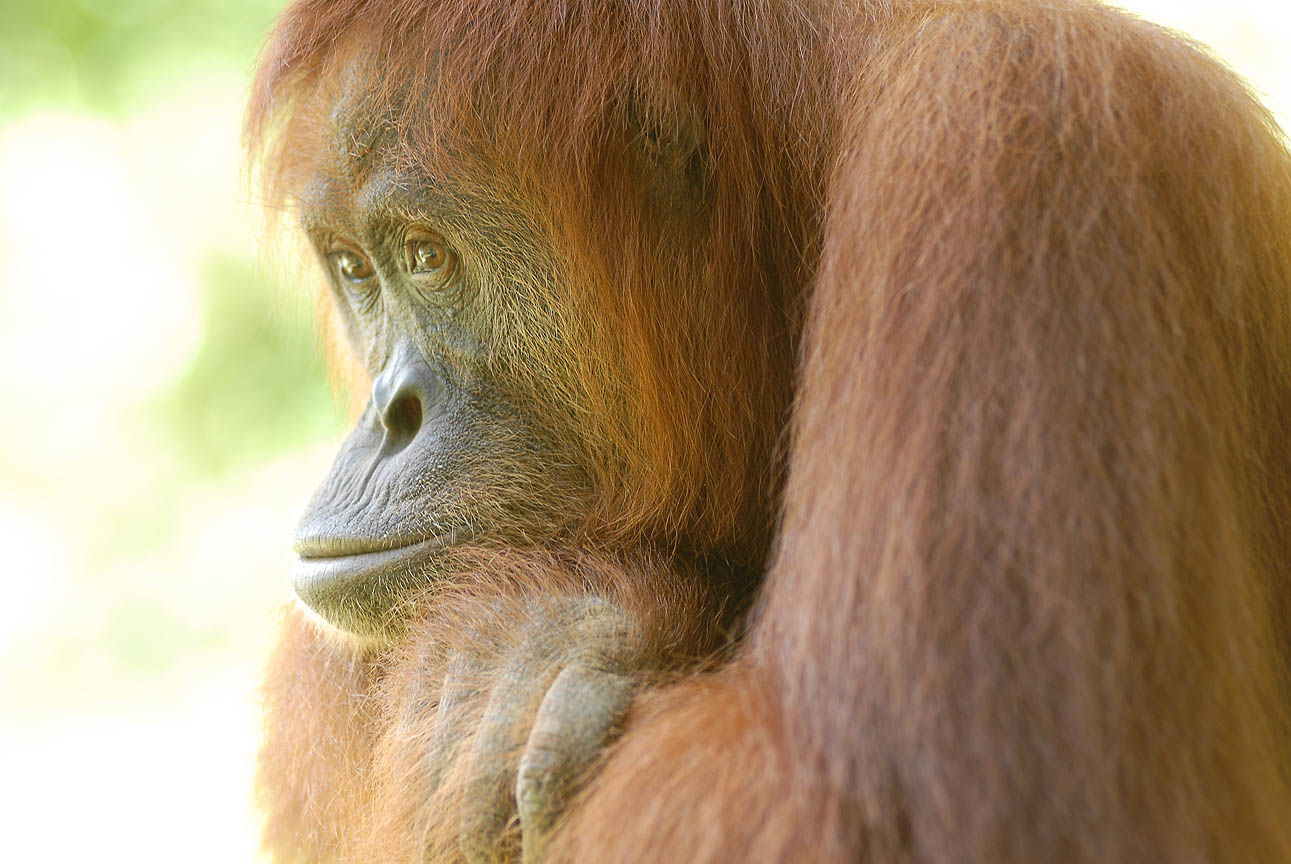Why are rainforests important?
Orangutans share their rainforest with many other wonderful animals, like tigers, elephants and rhinos. So, if you help to protect the rainforest, you will also be helping to protect thousands of other animals.
But it’s not just orangutans who need the rainforest. People do too! Think of the rainforest as a giant green blanket that helps to keep our whole planet safe and healthy. It can absorb huge amounts of rainfall, giving people a steady water supply and reducing the risk of floods. Rainforests are also important for slowing climate change – we call them ‘carbon sinks’ as the trees in the rainforest breathe in lots of ‘greenhouse gases’.
The rainforests are also important for the local people who live there, as they provide food, resources such as wood, and other things that the people need to survive.
